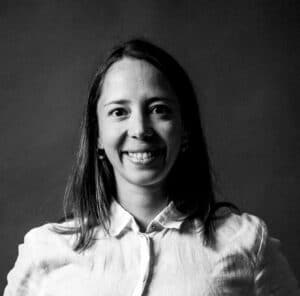 New with Budrich:
New with Budrich:
Female Social Entrepreneurship. Challenging boundaries and reframing gender and economic structures
by Miriam Gerlach
About the book
The confluence of entrepreneurship, gender, sustainability and especially the social dimension is intricate and underestimated. This book analyses social entrepreneurship through a gender lens by portraying German female social entrepreneurs and their political, social and economic contexts. Within a descriptive qualitative research design, a secondary analysis of different dimensions of the social entrepreneurship system and twenty-five in-depth interviews with social entrepreneurs and experts were conducted. Author Miriam Gerlach shows that this sector entails potential to re-do gender and reframe the economy, challenging norms and borders towards systemic change.
Miriam Gerlach’s short vita in own words
 Since June 2020 active as a post-doc research associate in the Professorship of “Economics of Sustainability” with a focus on the area of “Sustainability & Entrepreneurship” with special consideration of gender and diversity issues. Research focus includes, social and sustainability entrepreneurship, gender and diversity, social development and well-being, social inequality and inclusion, resilience, creativity, and innovation, trans- and interculturality, and intersectional and decolonial feminism.
Since June 2020 active as a post-doc research associate in the Professorship of “Economics of Sustainability” with a focus on the area of “Sustainability & Entrepreneurship” with special consideration of gender and diversity issues. Research focus includes, social and sustainability entrepreneurship, gender and diversity, social development and well-being, social inequality and inclusion, resilience, creativity, and innovation, trans- and interculturality, and intersectional and decolonial feminism.
After finishing a bachelor’s in psychology in Lima/Peru, I concluded a master’s in social sciences in Austria and then completed a PhD Program in Gender Studies in Germany (University of Vechta) as a scholarship holder. In parallel I have gained working experience in market research, human resources, sports psychology, and coaching; collaborated in various international and interdisciplinary research projects and worked as a lecturer in different universities.
1) Dear Miriam Gerlach, please summarize the content of your current publication Female Social Entrepreneurship for our readers.
The book is the result of my doctoral project/dissertation project. The aim of my research was the comprehensive description and analysis of female social entrepreneurship in Germany. The main research question was whether social entrepreneurship in combination with feminist approaches has the potential to transform the whole entrepreneurship system. To answer this, I applied a descriptive research design and conducted a total of 25 interviews with social entrepreneurs and experts.
Furthermore, I carried out a secondary analysis of the social entrepreneurship ecosystem in Germany. The focus here was the description of the political and economic guidelines and the forms and contents of the various initiatives that support and promote social enterprises. Key results include, among others, an integrative frame for the analysis of the social entrepreneurship ecosystem, insights into social entrepreneur’s personal paths, as well as their impact and management practices, ideas to promote the sector and discussions around its potential.
Additionally, practices of doing gender were described, showing that a diverse spectrum of discourses on gender is being utilized.
Lastly, recommendations for the field and future research were suggested. The study shows that this sector entails potential to re-do gender and reframe the economy, challenging norms, and borders towards systemic change.
2) How did you get the idea to write this book?
I came to the first idea through my previous professional experiences, in which I met various social entrepreneurs in different fields, such as in education, in sports, in recycling. I found them all very inspiring and was amazed by the impact they were generating and their innovativeness. When I found out that the percentage of women in commercial entrepreneurship in Germany is only about 15% compared to about 49% in the field of social entrepreneurship, it was clear to me that I wanted to look at social entrepreneurship through a gender lens. However, it was important to me not to look at this sector perpetuating stereotypes, such as looking for an essential relation between the feminine and the social, but just exploring the forms, sector, and formats, etc. of female social entrepreneurs, giving them a voice and showing the multiplicity of women’s backgrounds, experiences, and motivations.
3) What are currently the greatest structural challenges for female social entrepreneurs?
As my research shows, the greatest structural challenge for social entrepreneurs, when analysed through this gender lens, is clearly the gendered labour division and the perpetuation of stereotypes with regards to gender roles. Here for example as in the working environment in general, challenges are the “double bind” for women, where they are either seen as too bossy, strict or unwind or they are perceived as too soft, too nice, not ready for a leading position; women are never good enough. Other problem because of this gendered labour division, especially for social entrepreneurship, is the “ghettoization” of woman into this social sector, which becomes problematic when woman are the legitimate social entrepreneurs for slow growing, feminized, undervalued and poor remunerated sectors, which just reinforces stereotypes and discrimination. Moreover, the gender pay-gap, glass ceiling and horizontal segregation are challenges in social entrepreneurship as well.
The interviewees underlined also as challenging in Germany, the lack of funding and efficient legal structures, and the fact that the sector is still very conservative in terms of policies and innovation; also, there is a biased and unfair competition for funding and grants.
Finally, there is a lack of a gender approach in the social entrepreneurship sector in general in Europe, and in Germany specifically. From all supportive initiatives (e.g., social impact hubs, funders and financing organisations, etc.) analysed through the secondary analysis there was no initiative with a feminist or gender approach and no specific regular offers for female social entrepreneurs in Germany.
4) How do you think these challenges will change in the coming years?
As we have seen over the last 50 years or more, the challenge of the gendered labour division and gender role stereotypes are changing very slowly, with small steps in policy and social beliefs. However, the specific sector of social entrepreneurship, being itself a concept that is framed to be system changing, I believe and remain hopeful that this will reflect as well in social enterprises that promote and fight for gender equality and inclusion, and in initiatives supporting this sector, so that they will be constructed with a gender or intersectional approach.
Another important aspect is that social entrepreneurs (as individuals and as organisational forms) can act as role models that do not correspond to stereotypes. Stereotypes not only within entrepreneurship, but within the social sector as well. This contributes to changing social expectations and beliefs about who and how can somebody be and become an entrepreneur.
5) This is why I am author with Barbara Budrich
Barbara Budrich is one renown publisher for humanities and social sciences, and especially Gender Studies. Their support for young researchers and academics is very valuable. I was supported competently during the editing and sales process, and all the way I felt I was in good hands. Communication was clear and timely, as well as very friendly. I will continue being an author with Barbara Budrich very gladly.
Order now via Budrich webshop

Miriam Gerlach: Female Social Entrepreneurship. Challenging boundaries and reframing gender and economic structures
L’AGENda, vol. 10
© author’s photo: Markus Laghanke
© header image: Sketchify <https://www.canva.com/p/sketchify/>
created with canva.com <https://www.canva.com/>

